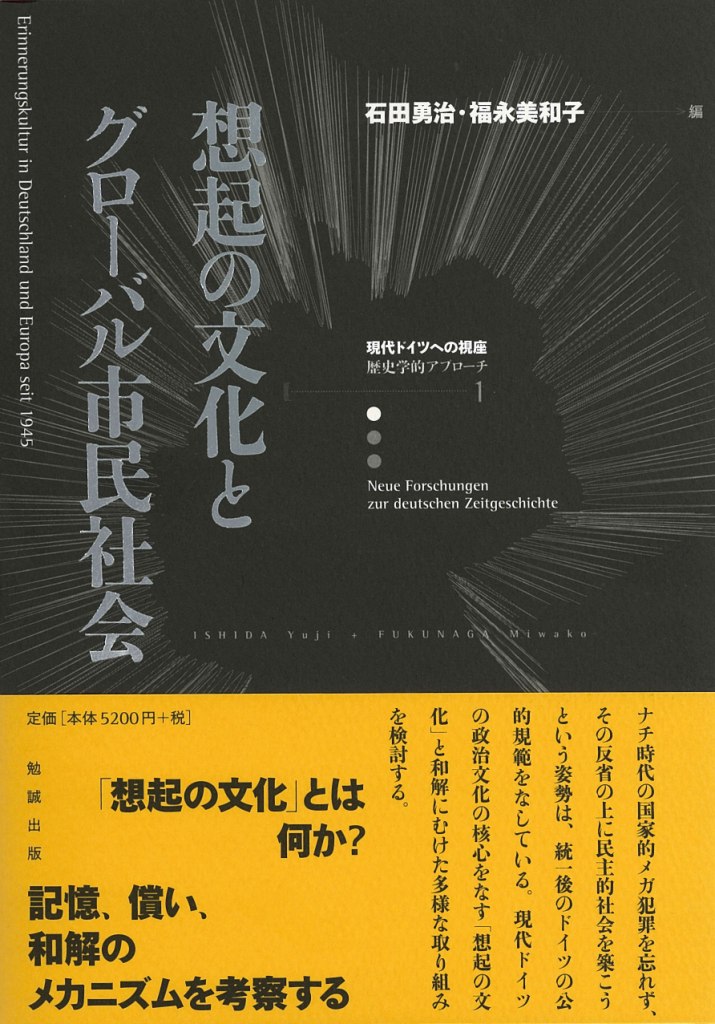
Title
Perspectives on Contemporary Germany: A Historical Approach (3) Doitsu Shimin Shakai no Shiteki Tenkai (Historical Development of Civil Society)
Size
368 pages, A5 format
Language
Japanese
Released
September, 2020
ISBN
978-4-585-22514-0
Published by
Bensei Publishing Inc.
Book Info
See Book Availability at Library
Japanese Page
One of the characteristics of contemporary German society is its various forms of “civic engagement.” These include membership in non-profit associations (Verein), voluntary activities, participation in local government councils, activities in honorary positions, and social movements calling for solutions to social problems and the reformation of social and political systems. In today’s Germany, citizens’ voluntary activities are promoted to strengthen democracy, facilitate social integration, and effectively tackle difficult problems that cannot be solved by the government alone.
In German history, the age of Enlightenment, from the late 18th century to the early 19th century, witnessed the emergence of the modern “citizens” who organized themselves as free, independent citizens with equal rights, thus creating a “critical public sphere” for free debate; freemasons, reading circles, and political clubs were typical examples. The history of civic activities in contemporary Germany can be partly traced back to the self-organizations that citizens formed at that time.
More than 200 years have passed since the emergence of modern “citizens” in Germany. What are the characteristics of the new civil society that is attracting renewed attention today? As we see from the arguments of J. Habermas, a leading scholar of civil society, the relationship between the state and civil society, regarded as confrontational, is now also discussed as cooperative. The basic norms of civil society too have changed—in addition to its classical values since the Enlightenment (liberty, equality, fraternity, and self-reliance), others such as respect for human rights and dignity, tolerance, openness, and non-violence are now shared throughout today’s German civil society after the two dictatorships of national socialism and communism.
Today’s German civil society is thus taking new forms, but it cannot be understood without considering its historical roots. This book, the third volume in the series Perspectives on Contemporary Germany: A Historical Approach, considers German civil society from a historical perspective, taking its complete historical development—from the end of the 18th century to the present—into account.
The book is divided into four parts.
Part I, What is Civil Society?, contains keynote essays by leading scholars on civil society in Japan and Germany. Part II, The Transformation of Civil Society: A Chronological Approach, comprises essays that chronologically trace the development of civil society in Germany. Part III, Civil Society under the Socialist Regime, focuses on the development of civil society in the second half of the 20th century, particularly in East Germany and other Eastern European countries during the Cold War and its aftermath. Part IV, Civil Society in Japan and Germany, compares civil society in Japan and Germany.
(Written by ISHIDA YujiISHIDA Yuji, Professor and KAWAKITA Atsuko, Associate Professor, Graduate School of Arts and Sciences / 2021)
Related Info
Volume 1: Souki no Bunka to Global Shimin-Shakai (Remembrance Culture and the International Community)
ISHIDA Yuji, FUKUNAGA Miwako (eds.)
https://www.u-tokyo.ac.jp/biblioplaza/en/C_00111.html
Volume 2: Nazism, Holocaust to Sengo Doitsu (National Socialism, Holocaust, and Postwar Germany)
ISHIDA Yuji, KAWAKITA Atsuko (eds.)
https://www.u-tokyo.ac.jp/biblioplaza/ja/G_00124.html



 Find a book
Find a book





